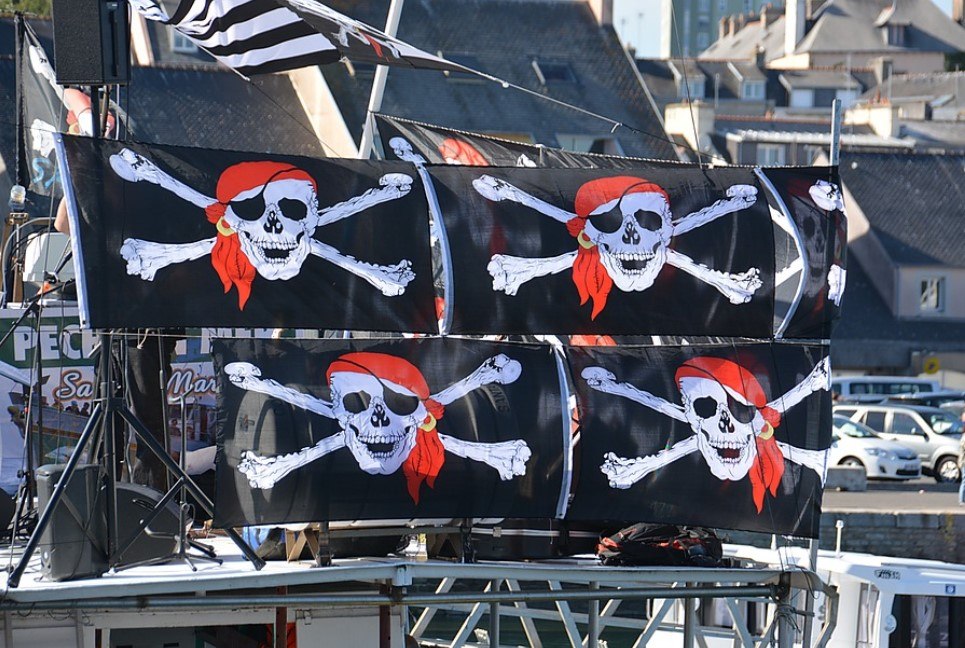 Most pirate sites and apps won’t survive without ad revenue. This is why the advertising industry is seen as an ally in the fight against piracy.
Most pirate sites and apps won’t survive without ad revenue. This is why the advertising industry is seen as an ally in the fight against piracy.
Over the years, several ad-focused anti-piracy initiatives have emerged. In the UK, hundreds of advertising agencies began banning pirate sites, and the European Union chimed in as well.
WIPO’s Pirate Site Blocklist
These initiatives are relatively local while many pirate sites cater to a global audience. This lack of coordination motivated the World Intellectual Property Organization (WIPO) to develop a system that’s coordinated worldwide, with input from around the globe.
WIPO, which is part of the United Nations, was founded more than 50 years ago with the aim of protecting intellectual property. This includes combating online piracy, something it hopes to facilitate with its blacklist.
The idea for such a global database was first introduced by WIPO in 2017 and, behind the scenes, it was developed into a fully operational resource. It was initially rolled out as the ‘BRIP’ Database, short for “Building Respect for Intellectual Property,” but was later renamed to “WIPO Alert”.
Cutting Off Ad Revenue
The goal of the project is simple: allow stakeholders from member states to report problematic sites and share the resulting list with advertisers, so they can block bad apples. This should result in less money going to pirate sites, making it harder for them to generate profit.
At the moment, little is known about the effectiveness of the WIPO Alert system since the organization and its partners haven’t released much detail. What we do know is that earlier this year, there were 5,800 domain names reported as “copyright infringing” sites.
Needless to say, this is a massive blocking campaign, arguably one of the largest in the world. What’s concerning, however, is that there’s little information available on what sites are included.
WIPO Can’t Guarantee Accuracy
As we highlighted in the past, WIPO says that it can’t guarantee that the websites listed in its system are indeed copyright infringing. This responsibility lies completely with the reporting organizations.
“WIPO is simply providing a service to its Member States and to the international advertising industry in facilitating global access to data compiled at national level. The national agencies which create the lists of sites remain solely responsible for their contents,” the organization writes in its FAQ.
Initially, it was unknown who these national reporting agencies are but WIPO has made some progress on this front. There’s now a public page that shows which organizations are maintaining the blocklists.
The list of reported organizations includes Roskomnadzor from Russia, Italy’s AGCOM agency, CODA from Japan, Korea’s Copyright Protection Agency, Lithuania’s RTCL, and a Spanish Government department. Some blocking agencies publicize details on the blocked sites, but others intentionally keep these from public view.
A few weeks ago we reached out to WIPO requesting more details about the system and the blocked URLs. Despite confirmation that our inquiry had been received, there was no response. When we tried again this week WIPO continued its silence.
While we have no reason to believe that most of the sites in the “WIPO Alert” database are indeed infringing, the current system makes it hard to verify this and spot potential errors. This can cause some serious issues.
National Rules Differ
Russia’s Roskomnadzor, for example, previously instructed local ISPs to block 13.5 million Amazon IP-addresses to prevent subscribers from accessing the Zello app. And the same organization is cracking down on “unauthorized” VPNs too, and has threatened to block Twitter, Facebook, and YouTube.
The examples above are not strictly related to copyright but it shows that blocking standards can be quite different from country to country. On its website, WIPO acknowledges this by stressing that reported sites are deemed to be copyright infringing based on “national rules.”
The varying standards are also apparent when we look at the sites and services that copyright holders report to the US Trade Representative as notorious piracy markets. Just a few weeks ago, the MPA flagged Telegram as a piracy haven, and Russia’s social networking site VK.com was called out as well.
Interestingly, the MPA also reported the advertising company PopAds as a notorious piracy market. This, despite the fact that PopAds actively uses the WIPO Alert system to block pirate sites.
There’s no evidence that any of the services mentioned above are on WIPO’s blocklist. But that’s exactly the problem. At the moment, there is no way to check and scrutinize one of the largest blocking operations on the Internet.
WIPO stresses that its Alert system helps brands to avoid the negative reputational effect they can face when their ads appear on pirate sites. Nothing is said, however, about the potential reputational damage for the WIPO Alert system that may occur if a legitimate site inadvertently ends up on its list.
From: TF, for the latest news on copyright battles, piracy and more.
0 Commentaires